Peking Univeristy, December 22, 2020: Wang Li (1900-1986), towering linguist, educator, translator and poet. He was one of the founders of Chinese modern linguistics and a high-yielding scholar, with over 40 monographs and more than 200 papers covering almost all fields of linguistics, including phonetics, grammar, dialect, rhyme schemes, lexicology and history of the Chinese language. He founded the first department of Chinese linguistics at Sun Yat-sen University, and devoted all his life to the development of linguistics in China.
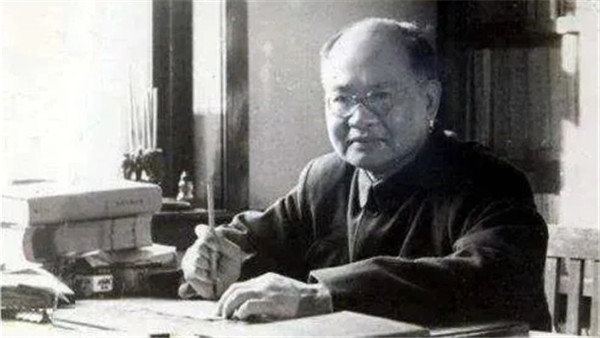
No.60 Yannan Garden, previously Wang Li's residence, is now the office of PKU College of Engineering. Stepping in front of the two-story compound in such a chilly night, with bare branches and aged fences firmly standing in the strong wind, one cannot help but imagine the ever-glowing lamp that accompanied Professor Wang Li throughout his academic career in Chinese linguistics, bringing hope and encouragement to passers-by in the midnight. It was at this spot that Wang and his family lived for 29 years, a period in which he accomplished many academic monographs of great importance, including A Draft History of Chinese, Chinese phonology and Strict pattern learning of Chinese poems. His works have helped set up the foundation of Chinese linguistics and still ignites the zest of numerous students today to explore the beauty of the Chinese language.
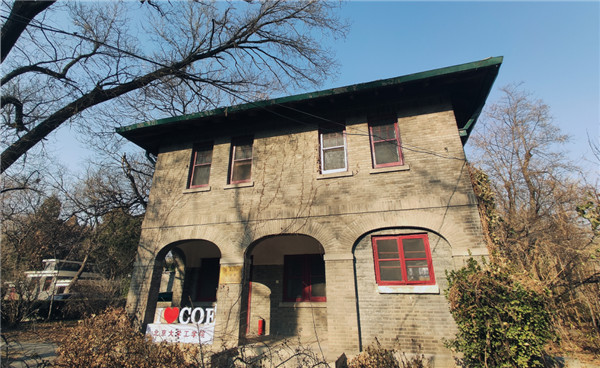
People in ancient China compared monographs as "carving dragon" and small articles as "carving bugs". Wang's work, however, encompassed huge amounts of professional classics for experts and students in his field, as well as expositions and even instrumental books that are accessible for amateurs and beginners. In fact, he even wrote several booklets teaching Wu dialect (Wu dialect refers to the dialect used in Wu region, including Zhejiang province, Southern Jiangsu province and Shanghai) and Cantonese speakers to learn mandarin. He named one of his collections as "a book of both 'dragons' and 'bugs' in literature and linguistics". These "dragons" and "bugs" served as bricks to build the mansion of Chinese linguistics, where people of all sectors were welcomed – that was the effort of Wang Li, the architect of the building.
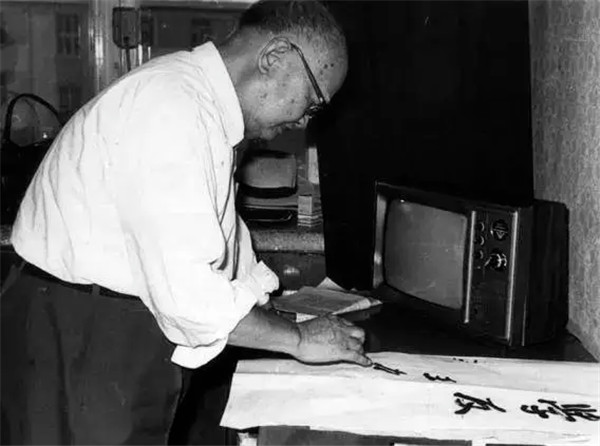
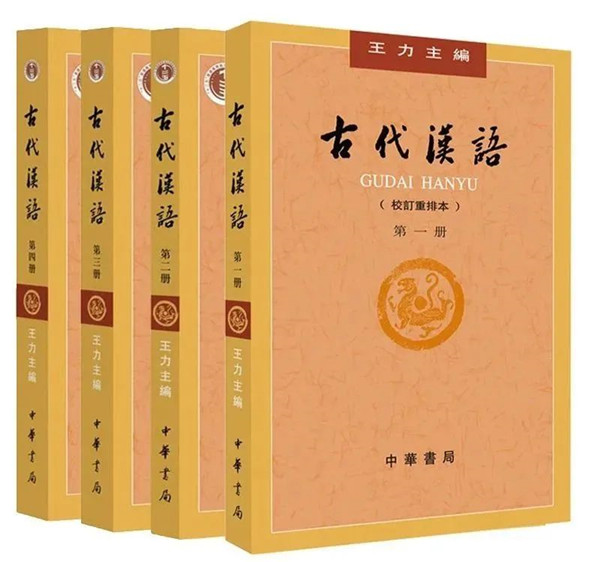
“We drifted between seven provinces to flee from war, with only a lonely bean light to accompany me through the dreary nights.”
Wang Li was no stranger to being alone, as he wrote in a poem for his wife on their 45th wedding anniversary, "We drifted between seven provinces to flee from war, with only a lonely bean light to accompany me through the dreary nights". Born in a small village in Bobai county of Guangxi Zhuang autonomous region in 1900, he had a hard childhood. Wang was determined to be a novelist when he was just 7 years old. However, he dropped out from primary school at 14 due to the lack of money. In following 10 years, Wang dedicated much of his time in self-studying which underpinned his solid foundation in Chinese. In 1927, he was admitted to the Institute of Chinese Classics at Tsinghua University, which was the famous alma mater of the distinguished "Four Tutors" in China, i.e. Liang Qichao, Tschen Yin Koh, Wang Guowei and Chao Yuen Ren, all of whom were Chinese scholars par excellence in modern times. Wang followed Chao's footsteps and delved into the ocean of linguistics. After his graduation from Tsinghua University, Wang went to Paris alone for further studies. In Sorbonne – the center of language study at that time, Wang dug in experimental phonetics and applied what he learned to study the dialect of his birthplace systematically. To eke out a living, Wang Li translated French literature works into Chinese in his spare time and mailed his manuscripts to the Commercial Press, hoping to have a paid publication. Ye Shengtao, a renowned writer and educator, was one of the editors in the press. He was pleased with Wang's work, appraised it as "no regret was left in terms of language elegance". In 1932, Wang gained his PhD and returned to Tsinghua University as a faculty member, sharing his knowledge with numerous intelligent counterparts and students, as well as continuing his exploration in linguistics.
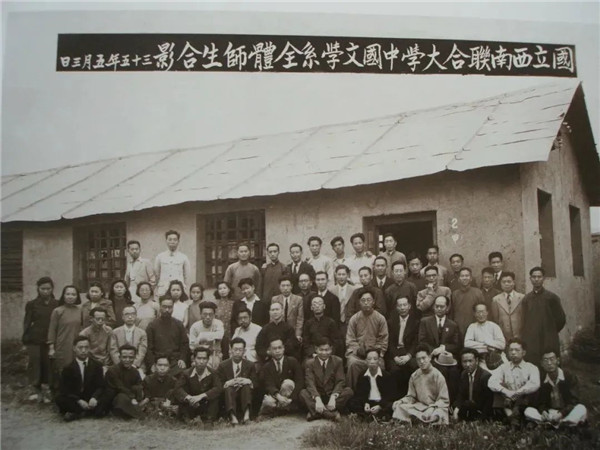
However, it was a time when China suffered from the invasion of Japan, and the impending war made the social and political situation of Beijing and Tianjin grow worse by the second. On July 29 and 30, 1937, the student dormitories of Nankai University were bombarded by Japanese air force, making the moving of universities an urgency. Faculties, students and staff from Peking University, Tsinghua University and Nankai University had to leave Beijing and Tianjin to southwestern China, where they founded the famed National Southwest Associated University. This institution later trained hundreds and thousands of talents who eventually became leading scholars in their respective fields. During this turbulent period, Wang completed the Grammar of modern Chinese, mastered Vietnamese and wrote a paper that compared the new-learned language with Chinese. In 1946, Wang was appointed as dean of Department of Chinese Language and Literature at Sun Yat-sen University (SYSU). There, he founded China's first department of Linguistics, in the hope of nourishing a pool of youth who could help establish the bright future of Chinese linguistics.
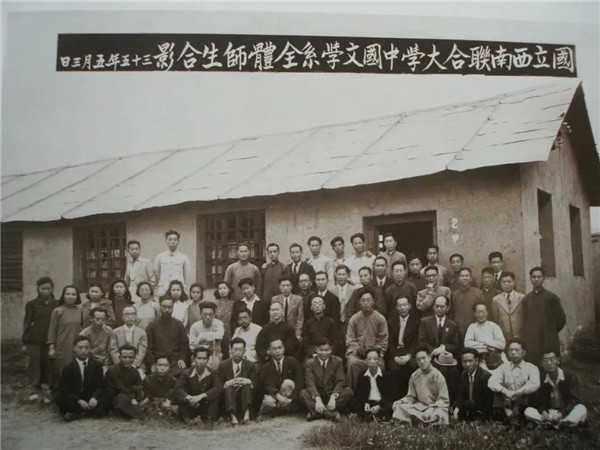
Wang Li went to Peking University in 1954, when SYSU Department of Linguistics was merged into PKU Department of Chinese Language and Literature. As one of his students, Li Wei, said in an interview, that "...the merge (of SYSU Department of Linguistics) with the PKU Department of Chinese Language and Literature would not have reached such a high level of recognition if it were not for Wang's continuous effort. The act of two established departments merging as one is of great significance to the development of the linguistic community." At PKU, Wang Li embraced the prime time of his career, publishing 28 monographs and many papers that covered almost all fields of the Chinese language.
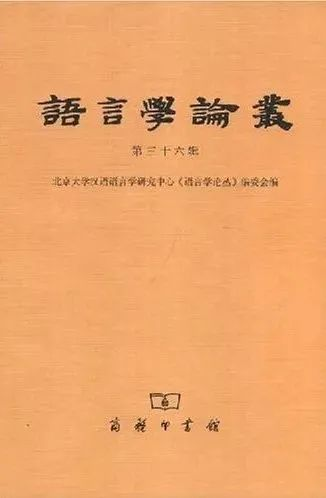
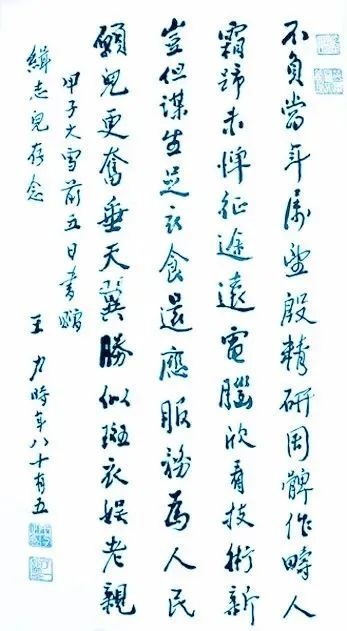
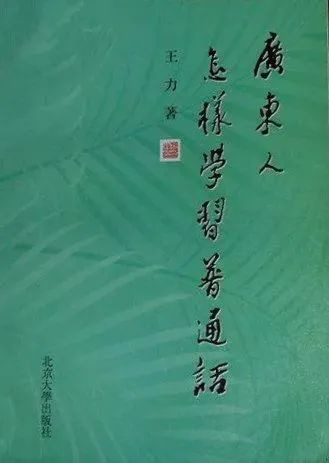
“Do not mention that I’m close to 80 years old, I will make use of my remaining energy to write a thousand more papers.”
In 1966, the Cultural Revolution started. This political event cut a wide swath through almost all aspects of people's life. As a result, Wang Li's research was also brought to a halt and he was forced to work at coal plant. His book collection and manuscripts, similar to the treasured works completed by many Chinese intellectuals, were sealed up and prohibited from the public. Wang wrote in his diary that he was "unaccommodated by this world" and felt "painful for the drastic social changes".

However, he kept studying linguistic using the knowledge stored in his memory. Every day when he was allowed to go back home, which was usually in the wee hour when everyone finished a day's laborious work, Wang would immediately record what he processed in his mind during the daytime. He accomplished Rhyme Reader of Odes and Chu Songs during those turbulent years. This book offered an elaboration of the rhyming rules for both insiders and professionals to understand and grasp the Old Chinese pronunciation. In 1974, people were called to "examine legalist theories and censuring Confucianism", which meant that a lucid dictionary of commonly-used characters in ancient Chinese was badly needed in order for workers to be able to read the classics of legalism and Confucianism. Wang was arranged to participate in the lexicography, selecting entries that are "mostly used" in ancient Chinese literature. It was a work on rule of thumb at that time, with no access to computers and other digital devices. Wang cherished this opportunity. Soon, he was immersed in seeking proper entries and conducted discussions with colleagues day and night. The dictionary became a popular hit once it got published, which wouldn't have been possible if it was not for Wang and other specialists' effort. In fact, the dictionary was the expansion of a chapter called "common-used phrase" in Wang's book, the Ancient Chinese, therefore the birth of this dictionary was credited to Wang as well.

Wang was 76 years old when the Cultural Revolution finally ended in 1976. In contrast with many others similar to his age who chose to retire, Wang did not want to waste any more time and continued his career in Chinese linguistics. He wrote a poem to inspire himself, in it he wrote, "do not mention that I'm close to 80 years old, I will make use of my remaining energy to write a thousand papers." Like a candle refused to be burnt out, Wang seized minutes and seconds to spread the sparks of thinking as wide as possible. In less than 10 years, he wrote hundreds of high-quality papers, revised and expanded the Manuscript of Chinese history as the History of Chinese Phonetics, the History of Chinese Grammar and the History of Chinese Vocabulary. He delivered speeches in universities and institutions, wrote articles to journals, and even answered thousands of letters consulting him trifles like how to write a letter or how to learn a language. Even at later years at the age of 83, Wang created the examination and recognition of Chinese words with variant pronunciations, and wrote the lexicography of ancient Chinese.

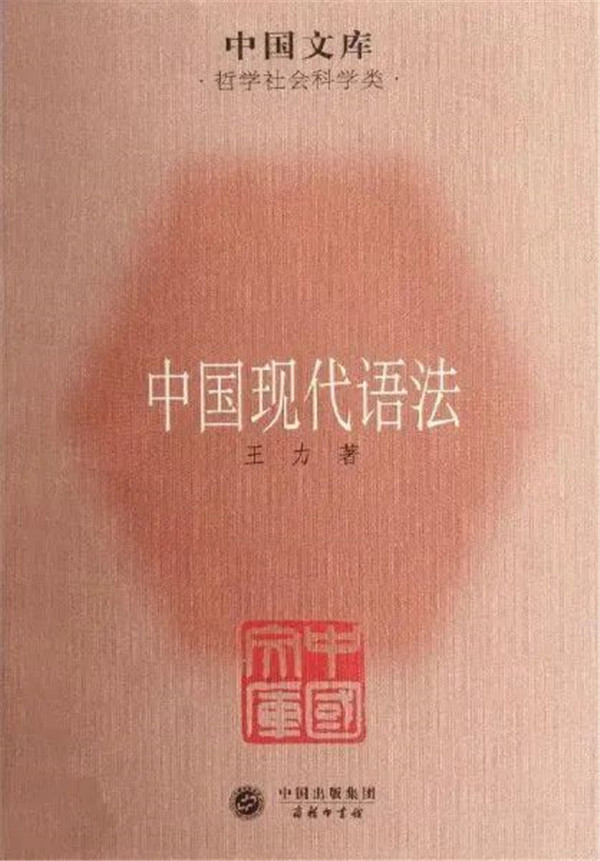
Wang suffered from cataracts and later leukaemia, but still kept working every day with the help of a magnifying glass. Wang's assistant, Professor Zhang Shuangdi, recalled that on the day before his death, Wang laboriously wrote on an envelope "Zhang promised me to write the Hai part of the dictionary, but what else can I do? I'm now exhausted all day long." The dictionary he was wholeheartedly devoted to was finally published under the name of "Wang Li's Classical Chinese Dictionary", with a special written note in the memory of his contributions to the development of Chinese linguistics. As Zhan Bohui, a famous linguist, once said, "Chinese scholars have one thing in common, that is, the persistent pursuit of their academic goals and noble aspiration, they seek progress even in the last days of their lives, undisturbed by the exterior disturbance and obstructions." Wang was the best portrayal of such spirit.

“I devote myself to act as the pillar of education, to nourish talents who dedicate themselves to the prospect of our country.”
Most of Wang's students had read his book, or at least heard of him even in their high school days, because many of Wang's books have been indispensable references for learning ancient Chinese prose and poems. For them, Professor Wang Li came across as an amiable, erudite teacher, answering their question patiently and gently, and never expressed his disapproval with harsh words. In the 1960s, the Soviet Union planned to introduce Wang's Outline of Chinese Grammar into Russian. Wang and other three young assistants translated the long foreword written by Soviet's Sinologist. After the Russian edition was published, Wang gave all the payment to his assistants as a way to improve their living standards during difficult times.

The Journal of Linguistics was a platform Wang Li and his colleague prepared for the promotion of new talents. In the autumn of 1956, when the new generation of linguists were starting to excel in their fields, Wang was busy seeking opportunities to publish their academic progress. However, few journals of this field were issued at that time, so Wang proposed the Department of Chinese to establish a new journal for younger linguists where they can publish their academic views freely. Thus, he created what is now known as The Journal of Linguistics, which has issued over 20 volumes, including papers not only from young faculty and graduates in PKU Department of Chinese Language and Literature, but also from other universities and language institutions. So far, this journal has been listed as one of the most-cited linguistic journals compiled by the standing committee for the humanities, European Science Foundation.

In 1984, Wang Li paid his last visit to Sun Yat-sen University and was invited to deliver a speech themed "The phonetic system of modern Chinese". It attracted a large number of audience of 12,000, which crowded the 5000-seat Sun Yat-sen Memorial Hall and the lawn surrounding it. Wang was greatly moved. Fu Yuxian, professor of SYSU Department of Chinese and also one of the audience members, was marveled at Wang's speech, "...he [Wang] boasted the morale of the largest audience in the history of Chinese education". It was Wang's last open class. In 1985, Wang donated the entire royalty of his collections to set up the Wang Li Prize in Linguistics.

Wang was kind but strict to his children. In the memory of Wang Jizhi, Wang Li's eldest son, also the former executive vice-president of Stone Company, commented that his father was a strong model of "philanthropic education" and seldom scolded at his children. But the "breeze" turned into a "hurricane" sometimes. There was a time when little Wang Jizhi was too naughty and got nailed from his father. Later, Wang Li was teased by his wife, saying that "you are not a real 'philanthropic father' as you often brag yourself to be". Though busy doing research, Wang still managed to bring the whole family to visit the Summer Palace, singing and boating on the Kunming Lake and often having a fancy meal as the end of the weekend. Wang Li was a father whose actions spoke louder than words, as Wang Jizhi noted, that "...the most important thing we have learned from him was that you must take your work seriously."
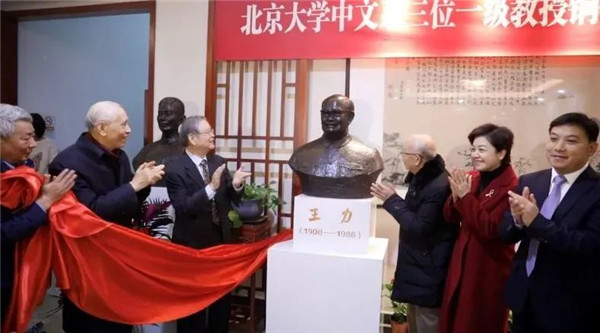
The year 2020 marks the 120th anniversary of Mr. Wang Li's birth since 1900, and also the 34th year he left us since 1986. The young students he cultivated are now pioneers in Chinese linguistic research. His life philosophy and humble personality, and most importantly the academic legacy he left behind have and will continue to inspire generations of young scholars in the field of linguistics.